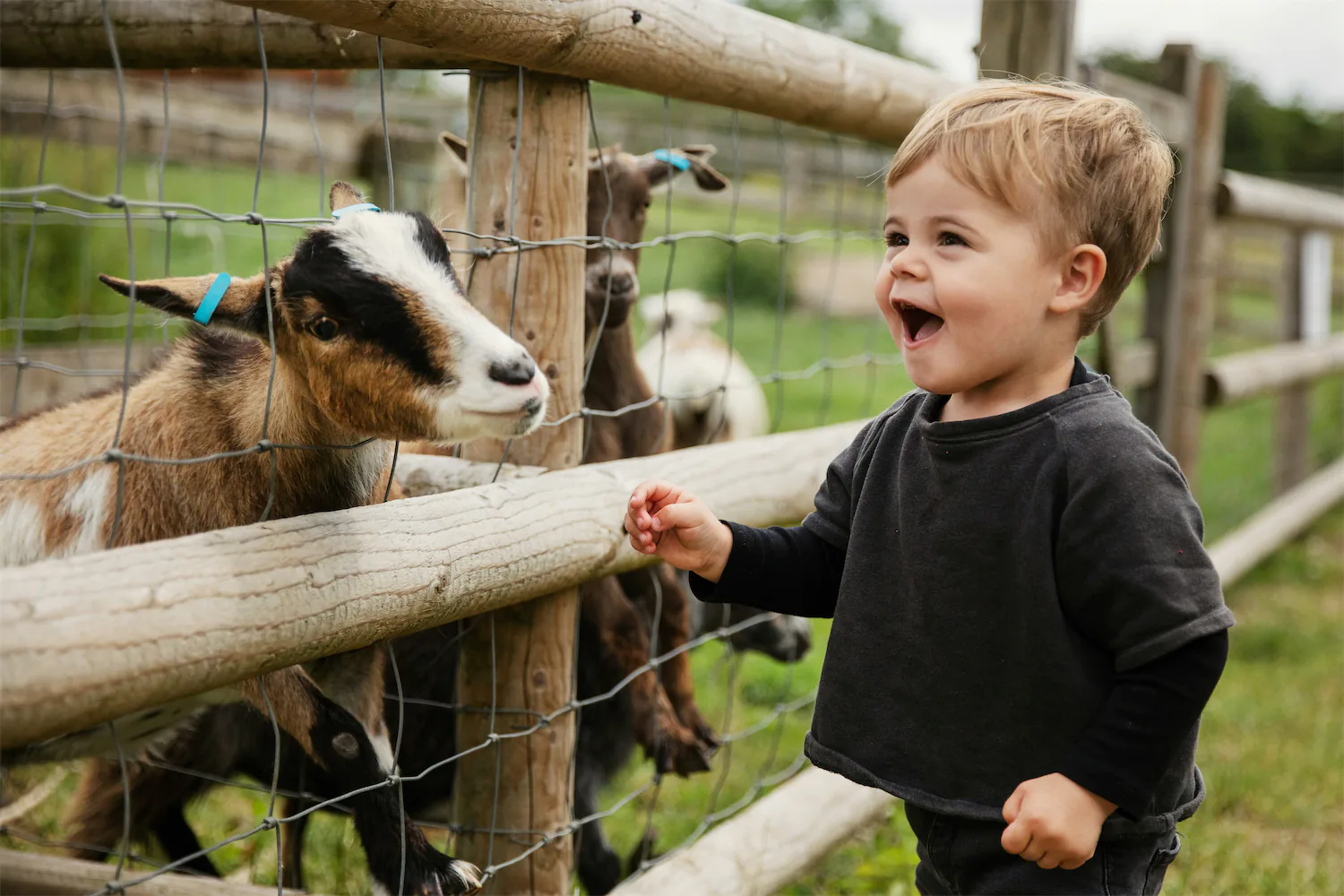Toddler development: Fifteen-month-old developmental milestones
Toddler development: Fifteen-month-old developmental milestones

Dahlia Rimmon, RDN
Content Writer

Dr. Marcy Borieux
Pediatrician



Physical and motor milestones for fifteen-month-olds
Most can walk independently and begin to run
Can squat down to pick up toys or objects
Can start climbing onto furniture
Scribbles with a crayon
Stacks two blocks or toys
Social and emotional milestones for fifteen-month-olds
Growing sense of independence
Increased curiosity about toys or surroundings
Express affection toward familiar people
Play simple pretend games
Show fear in certain situations
Start to imitate others, especially adults and older children
Language and speech milestones for fifteen-month-olds
Vocabulary grows to three words or more (simple words)
Understands and responds to simple commands and directions
Uses gestures such as pointing, waving, or shaking their head to express needs
Follows basic instructions like “give me the toy” or “come here”
Points to toys or objects to show interest
Gestures and babbles to communicate
Cognitive milestones for fifteen-month-olds
Begins exploring toys or objects in various ways, such as shaking, banging, or throwing
Starts using everyday items appropriately, like using a cup to drink or a hair brush to brush hair
Fifteen month well visit
At the fifteen-month well visit, the pediatrician will perform a thorough evaluation of your child’s growth, developmental progress, and immunization status. This visit includes a complete physical examination and developmental surveillance to ensure your child’s growth and development are on track. It also involves age-appropriate anticipatory guidance (like childproofing!), where your pediatrician will highlight key developmental milestones to watch for and support before the next well visit.
Feeding toddlers
By your baby’s first birthday, the goal is for them to eat three meals a day, one or two snacks as needed, a wide range of finger foods and textures, and all food groups. For hydration, babies can continue breastfeeding or switch to whole cow’s milk or a fortified plant-based alternative (like pea or soy milk) if your baby is ready to wean off breast milk. Limit milk intake to 16 ounces per day and offer water with or between meals. This is important because it will allow toddlers to get most of their nutrition from food and because excessive milk intake can interfere with iron absorption and cause constipation.
By age one, your baby’s vitamin D needs increase from 400 to 600 IU per day. Continue to offer supplemental vitamin D since it’s hard to obtain it from food alone.
Developmental progress
Every child is different and develops at their own pace. While developmental milestones provide general benchmarks, it's normal for children to reach them at different times. Some children excel in one area and take their time in others. Factors like temperament, family environment, and biology influence developmental progress. Instead of comparing your child to other children, focus on their patterns of progress.
When to consult your pediatrician
Contact your local or Summer Health pediatrician if your child:
Misses multiple developmental milestones
Shows a noticeable regression in skills
Shows problems with hearing, vision, or overall health that could impact development
If indicated, your pediatrician will refer your child to a developmental specialist for evaluation and support.
If you have questions about your child’s speech and language development, reach out to your local or Summer Health pediatrician for support. Summer Health is a pediatric telehealth platform offering 24/7 care, providing answers for everything from urgent concerns to everyday questions about your child’s health.
Physical and motor milestones for fifteen-month-olds
Most can walk independently and begin to run
Can squat down to pick up toys or objects
Can start climbing onto furniture
Scribbles with a crayon
Stacks two blocks or toys
Social and emotional milestones for fifteen-month-olds
Growing sense of independence
Increased curiosity about toys or surroundings
Express affection toward familiar people
Play simple pretend games
Show fear in certain situations
Start to imitate others, especially adults and older children
Language and speech milestones for fifteen-month-olds
Vocabulary grows to three words or more (simple words)
Understands and responds to simple commands and directions
Uses gestures such as pointing, waving, or shaking their head to express needs
Follows basic instructions like “give me the toy” or “come here”
Points to toys or objects to show interest
Gestures and babbles to communicate
Cognitive milestones for fifteen-month-olds
Begins exploring toys or objects in various ways, such as shaking, banging, or throwing
Starts using everyday items appropriately, like using a cup to drink or a hair brush to brush hair
Fifteen month well visit
At the fifteen-month well visit, the pediatrician will perform a thorough evaluation of your child’s growth, developmental progress, and immunization status. This visit includes a complete physical examination and developmental surveillance to ensure your child’s growth and development are on track. It also involves age-appropriate anticipatory guidance (like childproofing!), where your pediatrician will highlight key developmental milestones to watch for and support before the next well visit.
Feeding toddlers
By your baby’s first birthday, the goal is for them to eat three meals a day, one or two snacks as needed, a wide range of finger foods and textures, and all food groups. For hydration, babies can continue breastfeeding or switch to whole cow’s milk or a fortified plant-based alternative (like pea or soy milk) if your baby is ready to wean off breast milk. Limit milk intake to 16 ounces per day and offer water with or between meals. This is important because it will allow toddlers to get most of their nutrition from food and because excessive milk intake can interfere with iron absorption and cause constipation.
By age one, your baby’s vitamin D needs increase from 400 to 600 IU per day. Continue to offer supplemental vitamin D since it’s hard to obtain it from food alone.
Developmental progress
Every child is different and develops at their own pace. While developmental milestones provide general benchmarks, it's normal for children to reach them at different times. Some children excel in one area and take their time in others. Factors like temperament, family environment, and biology influence developmental progress. Instead of comparing your child to other children, focus on their patterns of progress.
When to consult your pediatrician
Contact your local or Summer Health pediatrician if your child:
Misses multiple developmental milestones
Shows a noticeable regression in skills
Shows problems with hearing, vision, or overall health that could impact development
If indicated, your pediatrician will refer your child to a developmental specialist for evaluation and support.
If you have questions about your child’s speech and language development, reach out to your local or Summer Health pediatrician for support. Summer Health is a pediatric telehealth platform offering 24/7 care, providing answers for everything from urgent concerns to everyday questions about your child’s health.
Summer Health offers fast and reliable pediatric urgent care through online doctors, all via text. Whether you’re worried about your baby's fever, rashes, or other children's health concerns, we provide expert advice and support anytime, right from your phone.

Never miss a post!
Sign up for our newsletter to receive articles and guides directly to your inbox!












